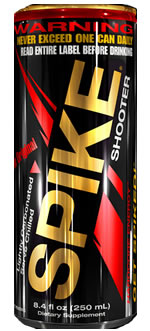
The ergogenic effects of caffeine seem to attenuate after 20 days of consecutive use, suggesting limiting high-dose caffeine only to the highest intensity training sessions or competitions to maximize performance. Lifters who habitually ingest a lot of caffeine might experience less of a strength boost from pre-competition doses and might consider a dose of at least 3 mg per kilogram or higher before a competition. If using soda or coffee, drink it 40 minutes prior to event. If using caffeine capsules, take them 60 minutes prior to event. per kilogram) before each event, may maintain steady plasma caffeine levels. This practice, using smaller doses of caffeine (2 mg. Repeated dosing may work better for competitions that are longer than two hours. Optimal dosing is 2-6 mg/kg of body weight, although individual experimentation is needed. Caffeine may also attenuate fatigue-induced decline in muscle strength. The evidence pertains specifically to the squat and bench press, but there's no reason it wouldn't apply to other lifts. Caffeine can improve maximum strength from 3-4%. The Review Highlights Caffeine Performance It's no wonder since caffeine can improve maximum strength by 3-4%, which, in the powerlifting world, might mean the difference between winning your weight class and not placing in the top three.Ĭaffeine's status and effectiveness piqued the interest of Schoenfeld and his scientist friends as they scoured through nearly every study on the subject and filtered out some precise and useful advice. Powerlifters and weightlifters especially love caffeine, reporting levels in urine samples significantly higher than those of athletes from other sports. What They DidĬaffeine is the popular ingredient of choice of competitive athletes partly because the World Anti-Doping Agency (WADA) dropped it from its list of within-competition banned substances. 
The paper offers some useful, concrete recommendations on caffeine dosing, timing, and other factors that could benefit regular lifters and all athletes. Brad Schoenfeld and colleagues, a bit unusual.

That's what makes this recent review on caffeine intake for powerlifting competitions, written by T Nation contributor Dr.

It's rare for PhDs to look at a bunch of studies and come up with specific recommendations. Scientists figure out how much caffeine to ingest before a workout, when exactly to ingest it, and whether habituation is a problem.







 0 kommentar(er)
0 kommentar(er)
